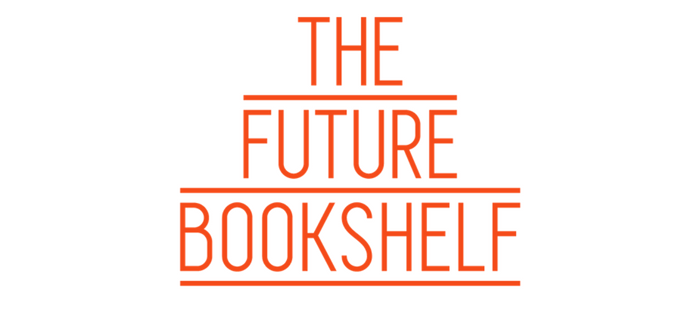You are viewing your 1 free article this month. Login to read more articles.
Publishers and chief executives respond to class survey findings
Following the sobering statistics uncovered by The Bookseller's survey into class barriers in the books trade the industry has shared its efforts to redress the class divide.
The Bookseller’s research into class revealed that almost 80% of those identifying as working class felt that their background had adversely affected their career in publishing. Across more than 1,160 respondents, an overwhelming sense of frustration was felt by many in regards to difficulty entering into the trade–such as internships, reports of nepotism, networking and low starting salaries–and subsequently progressing throughout one’s career. Difficulties were also reported by working class writers around events, courses and travel.
While many recognised the steps taken by the books industry to address this, many urged for greater reform so that the industry can be more representative of all socio-economic groups, rather than just being a playground for the middle classes. The Bookseller spoke to publishers about what they have done recently and what more they plan to do.
Penguin Random House, Bonnier Books UK, Pan Macmillan, Hachette and HarperCollins have described the various initiatives used to ensure class is not a barrier to those from less wealthy backgrounds, along with trade bodies the Publishers Association and the Society of Authors, and c.e.o.s with less traditional publishing backgrounds have shared their thoughts.
 Perminder Mann
Perminder Mann
Bonnier Books
C.e.o.
"While I grew up with a love of books, I never imagined that one day I would be the chief executive of a major book publisher.
I’m the child of first-generation immigrant parents, who arrived in the UK in the 1960s. A family of ten packed into a three-bedroom semi-detached house, I shared my bedroom with my five wonderful sisters. Money was scant, even with both my parents holding down two jobs to make ends meet. It might sound difficult or challenging to some: to me, it was normal. My early memories were happy ones.
The career advice I received at school was limited. My parents had a very basic education in India and so had no specific aspirations for me and my siblings. But they did want us all to work hard and get the best education possible. After university, like many of my fellow graduates, I struggled to find a job. It was only by chance that I ended up interviewing for a role with Macmillan, with absolutely no knowledge of the incredible world I had stumbled into.
My life experiences–the good and the bad–have equipped me with the skills I need in my current role as c.e.o. of Bonnier Books UK. My working-class roots certainly helped to build my resilience. To attract people from a variety of backgrounds, we must first be authentic ourselves and learn to celebrate our differences–and I confess, in the past, I have been reticent about sharing my own story. If we’re serious about change, we need to recognise the value these differences can bring to our business. Let’s focus not on what we lack; but what we stand to gain."
Anna MacLaren May
Bonnier Books
HR director
"The results of The Bookseller’s survey suggest that coming from a working class background is perceived as a systemic barrier to opportunity in the publishing industry. At Bonnier Books UK, we have recently introduced a number of measures to become a more inclusive employer, including introducing blind recruitment to tackle unconscious bias; increasing the salary of internships and enhancing our family leave policies."
 Stephen Lotinga
Stephen Lotinga
The Publishers Association
Chief executive
"Publishers are very conscious that the high cost of working in London can be a real barrier for those who want to get on in publishing and that’s why we support initiatives like the Spare Room Project which helps aspiring publishers make their first step on the career ladder.
While a university education can open doors, we want to ensure that it is not the only route into publishing and that’s why we have been working with publishers to develop a new publishing apprenticeship so that it’s much easier for people from more diverse backgrounds to get on in the industry.
All of this is important, but we can also do more to ensure that publishers don’t have to be based in London to succeed and that’s why we’re partnering with the Northern Fiction Alliance to deliver training and workshops for publishers outside of London."
Rina Gulrajani
Pan Macmillan
Head of HR
"We are acutely aware of the urgent need to improve access to publishing for those from diverse socio-economic backgrounds in addition to increasing gender and ethnic diversity and inclusion.
Our ambition is to reflect in our teams and through our authors the society in which we publish. We want to create as level a playing field as possible, not just for those already working with the company but also for those considering careers with us.
Since it was established in 2012, we have been a key partner of the diversity charity, Creative Access, pledging £50,000 when it had more than £2m in funding withdrawn by the government in 2016… and we will continue to partner with them in their vital work.
We have created a programme to roll out unconscious bias training to the whole of our senior management and will widen this out further in 2019.
Salaries are of course crucial to widening access to the industry. We regularly benchmark ours not only against the publishing industry but also vis a vis other media industries, paying particular attention to starting salaries. We have just raised our starter rates in response to this."
 David Shelley
David Shelley
Hachette UK
C.e.o.
"I feel very strongly that we could and should be attracting more people from low SES (socioeconomic status) backgrounds into the industry.
In terms of my own background, I was state school educated, the first in my family to go to university (I read English at Oxford) and I grew up without a lot of money, so there are many ways in which my life and early years in publishing would have been easier if I had come from a different background. But at the same time, I am really conscious of my privilege—I grew up living above the bookshop my parents ran, so I had a lot of access to books, to put it mildly, and I also benefited from some great teachers at school. And even though I was not initially earning enough to afford a flatshare, my family lived near enough to London (Lewes, East Sussex) for me to be able to commute to internships and to my first job. I know that friends of mine who did not live as close to London and wanted to get into the industry struggled much more.
I would love it if, as an industry, we could work together to enable people from a wider range of backgrounds to find jobs in publishing. In many roles there are real talent shortages and I think widening the pool will help us go forward as businesses as well as being the morally right thing to do. There are lots of initiatives in place at various publishers, and I hope the next step is for us to find ways to link up and maximise the impact of them. And of course it isn’t just about recruitment: we also need to nurture this talent and make sure that people from all backgrounds are supported and stay within the industry.
This is part of the ongoing conversation about diversity and inclusivity in publishing, and I think it is really important when we are having this conversation to be alive to all forms of inequality and to team up to address them in order to become an industry we can all be proud to work in."
Hachette
Spokesperson
"Hachette UK is focused on attracting and retaining talent from all areas and backgrounds and, in order to further this aim, the company is pursuing a number of initiatives to broaden its reach in terms of publishing and recruiting.
HUK is actively looking to open more offices out of London (as previously reported in The Bookseller), as well as Orion on Tour (aimed at promoting working in publishing to children from diverse backgrounds) and Hometown—the first four titles in this W&N series (from Glasgow, Yorkshire, the Midlands and the Highlands and Hebrides) were announced late last year. The series is aimed at promoting regional diversity by publishing voices from around the UK.
The All Together Network comes under Hachette’s Changing the Story umbrella, and promotes the recruitment, retention, and development of people from low Socio-Economic Status backgrounds and regional backgrounds. The network is for people from those backgrounds and their allies, plus anyone interested in promoting the social diversity of Hachette, as an employer and publisher of choice.
Nick Davies, co-chair of Changing the Story and Managing Director of Hachette imprint John Murray Press, emphasised the work of The Future Bookshelf, launched last year to demystify the writing and publishing process and removing barriers of entry for writers from under-represented backgrounds. "Prospective writers don’t need an agent and they certainly don’t need to have completed a writing course; they just need to send a sample of their writing and a personal statement via the open submissions portal," he said. "The strongest work is then considered for acquisition by imprints across HUK, and the authors are given advice about taking on representation."

Val Garside
Penguin Random House
HR director
"We are aware that across the publishing industry–and the creative industries more widely–there still exist many challenges in terms of accessibility and mobility for people from socio-economically disadvantaged backgrounds. We have been working hard over the past few years to break down some of these barriers, but we know there is still a way to go, and the results of this survey help to highlight some particular areas for focus going forward.
PRH has engaged in this area through a number of ways with recent measures including a refreshed flexible working policy, transforming its entry-level programme, The Scheme, considering offices outside of London as well as planned overhaul on pay banding this year."
Nicola Solomon
Society of Authors
Chief executive
"These figures from The Bookseller are depressing but perhaps not surprising. We have long been aware that there is a lack of diversity in the industry, with a shortage of working class writers and writers from each corner of the country.
We know that authors’ earnings are in decline, and that what publishers do pay is going to a smaller pool of authors. This inevitably acts as a barrier to emerging writers who don’t have additional sources of income. If writing is seen as a privilege then only the privileged will be able to write. This gives us an incredibly narrow group of people who can afford to write, which in turn will make it harder to attract new readers and lead to a narrowing of our readership base.
We need more working class writers and writers from all over the country. The Society of Authors is currently working on a regional development strategy which will extend our outreach and engagement work with authors to every region in England, alongside projects in Scotland and Wales from 2019. A programme of activity for skills training, professional development and networking will be coordinated by regional representatives on the ground to best respond to concerns and issues affecting local authors."
 Ian Hudson
Ian Hudson
DK
C.e.o.
"We made a decision to relocate DK recently and we did consider having two offices: one in London and one somewhere else in England but because of the way we work, the best decision was for us all to move together to Embassy Gardens in London, but I’m certainly very open as we move forward and grow and expand to open a second base in the UK, where we could build on a whole range of talent, much of which is out there from different social backgrounds."
John Athanasiou
HarperCollins
Director of people
"We want to ensure that our culture respects inclusion and difference in all forms, and our focus has been to engage every person at HarperCollins in driving change. We continuously develop and enhance our D&I strategy of which social inclusion is a key part. Crucial to creating a more inclusive workforce at HarperCollins is our introduction of blind recruitment which removes educational establishments and other key identifying factors from CVs, as well as compulsory unconscious bias training for all hiring managers and rigour throughout the recruitment process.
We see mentoring as a key development tool, and this is available to all who seek it at HarperCollins through one of many schemes currently running. We have reviewed and enhanced entry level salaries and we only offer paid internships, while our graduate scheme is a blind process targeting students at every university in the country, and our BAME Traineeship does not require a degree.
We are working with more than 130 GCSE students and school-leavers as part of our outreach programme—hosting two publishing summer schools, one for school-leavers in London and the other for young people from Stoke, in addition to programmed school visits that take place in situ in Stoke as part of our Literacy Project and NLT partnership.
HarperCollins also uses unconscious bias training, runs mentoring, hosts open submissions and has editorial teams in Yorkshire and Glasgow, and engages with The Good Agency, as well as editor Martha Ashby judging the recently launched Comedy Women in Print which is looking for unpublished female writers of comedic fiction."














